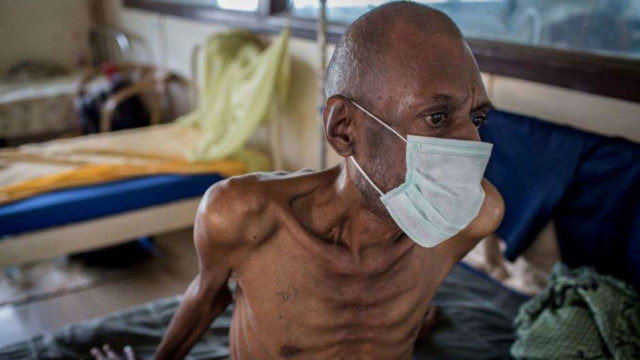In Nigeria, Tuberculosis (TB) continues to pose a major public health problem, contributing to a significant number of deaths both within the country and globally. The latest data from the World Health Organization (WHO) Global TB report reveals that in 2020, an estimated 9.9 million people developed TB worldwide, with Nigeria shouldering the highest number of TB cases in Africa. Nigeria’s TB burden accounted for 4.6% of the global total.
Addressing this critical issue requires urgent and comprehensive measures to combat TB effectively within the country. One crucial aspect is strengthening the healthcare infrastructure. Nigeria must invest in improving healthcare facilities, particularly in rural areas where access to quality healthcare is limited. This includes establishing well-equipped laboratories, ensuring a sufficient supply of medications, and providing comprehensive training for healthcare personnel. Strengthening the healthcare system will facilitate early detection, accurate diagnosis, and prompt treatment of TB cases.
Raising public awareness is another vital component of the fight against Tuberculosis. Educational campaigns need to be implemented at various levels, targeting communities, schools, workplaces, and healthcare facilities. These campaigns should emphasize the importance of early detection, completion of treatment, and the adoption of effective infection control measures. By dispelling myths and reducing stigma associated with the disease, communities can be better informed and empowered to seek appropriate care.
Expanding diagnostic capabilities is crucial to effectively tackle TB. Investing in advanced diagnostic tools, such as GeneXpert machines and molecular testing, can significantly improve the detection of TB cases. By enabling healthcare providers to initiate timely and appropriate treatment, these tools play a vital role in minimizing disease transmission and improving patient outcomes.
To combat TB effectively, Nigeria must foster collaborative efforts among various stakeholders. This includes government agencies, healthcare institutions, non-governmental organizations (NGOs), and international partners. By sharing resources, expertise, and experiences, Nigeria can implement comprehensive strategies to address TB and improve patient outcomes.
Ensuring treatment adherence is critical for successful TB management and prevention of drug-resistant strains. Nigeria must establish robust patient support mechanisms, such as counseling services and directly observed therapy (DOT), to ensure that patients complete the full course of treatment. Additionally, providing social support to address potential barriers to treatment completion can significantly improve patient outcomes.
Encouraging research and innovation is paramount to developing new diagnostic tools, treatment regimens, and preventive measures for TB. Nigeria should actively support local research initiatives and collaborate with international partners to contribute to the global fight against TB. By fostering a culture of innovation and supporting scientific advancements, Nigeria can play a crucial role in improving Tuberculosismanagement and control.
Preventing the spread of tuberculosis is of utmost importance in reducing its burden. Alongside early detection and treatment, preventive measures play a crucial role in tackling the disease. Implementing infection control measures in healthcare settings, such as proper ventilation, respiratory hygiene practices, and the use of personal protective equipment, can help reduce the transmission of TB.
Additionally, targeted interventions can focus on high-risk populations, such as household contacts of TB patients and individuals living with HIV, by offering preventive therapy. Vaccination with the Bacillus Calmette-Guérin (BCG) vaccine can also provide some protection against severe forms of TB, particularly in children. By emphasizing prevention strategies, Nigeria can make significant progress in reducing the incidence and impact of tuberculosis in the country.
Addressing the burden of Tuberculosis requires a comprehensive approach that includes strengthening healthcare systems, raising public awareness, expanding diagnostic capabilities, fostering collaboration, ensuring treatment adherence, and promoting research and innovation. By implementing these urgent measures, Nigeria can make significant strides in combating tuberculosis, saving lives, and improving the overall health of its citizens.



